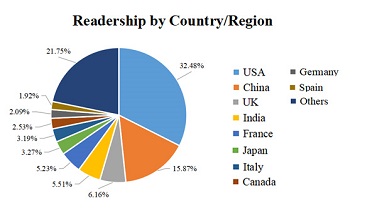Special Interview with Prof. Kenneth Blum
On March 12, 2025, Journal of Translational Genetics and Genomics (JTGG) was honored to conduct an exclusive interview with Prof. Kenneth Blum, a pioneering neuroscientist, who discussed his groundbreaking work on Reward Deficiency Syndrome (RDS) and its implications for mental health and addiction treatment. He highlighted how he conceptualized RDS in 1995, recognizing that mental health disorders are interconnected rather than isolated conditions. He emphasized the critical role of dopamine regulation in addiction and psychiatric disorders, explaining that spirituality and meditation can significantly impact brain chemistry by enhancing dopamine release, reducing stress, and fostering optimism.
Discussing neuroplasticity, Prof. Blum shared his research on customized nutrigenomic therapies, such as KB220z, which modulate dopamine function to treat addiction. He also revealed a landmark study on genetic prediction of mental illness, demonstrating that just five key genes can predict susceptibility to psychiatric disorders, challenging the traditional reliance on analyzing thousands of genes. Prof. Blum stressed the necessity of interdisciplinary collaboration, integrating neuroscience, genetics, and spirituality to advance addiction medicine. His latest research explores the genetic underpinnings of personality traits, PTSD, and depression, further advancing the understanding of mental health at a molecular level.
Click the link for full interview: JTGG Academic Talks
About Prof. Kenneth Blum

Prof. Kenneth Blum is a renowned neuroscientist and addiction researcher, best known for discovering the gene linked to alcoholism and coining the term Reward Deficiency Syndrome (RDS). Often referred to as the "Father of Psychiatric Genetics," he has pioneered addiction treatment through nutrigenomics, holding numerous patents and publishing over 500 scientific articles. Currently serving as the Neuroscience Advisor at The Shores Treatment and Recovery, he has developed innovative therapies such as Synaptamine (KB220z), which enhances dopamine function to treat addiction. In addition to holding key academic positions, Prof. Blum is Editor-in-Chief for multiple scientific journals and has received prestigious awards recognizing his contributions to genetics, addiction medicine, and neuroscience.
Editor: Iris Zhang
Language Editor: Catherine Yang
Production Editor: Ting Xu
Respectfully Submitted by the Journal Editorial Office of Journal of Translational Genetics and Genomics










